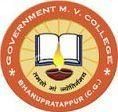BJC Colleges in India
Total Colleges Found: 186

Goverment Maharani Laxmi Bai Girls PG College, (GMLBGPGC) Indore
Indore, Madhya Pradesh

Deen Dayal Upadhyaya Gorakhpur University, Gorakhpur
Gorakhpur, Uttar Pradesh

Shanti Business School, (SBS) Ahmedabad
Ahmedabad, Gujarat
Shanti Business School (SBS), Ahmedabad Shanti Business School (SBS) was established in 2010 as a Corporate Citizenship Initiative by the Chiripal Group of Industries, a prominent conglomerate with a...

FLAME University, Pune
Pune, Maharashtra
FLAME University, Pune FLAME University, established in 2014, is located in Pune, Maharashtra. It is recognized for its interdisciplinary approach to education, with a strong emphasis on liberal arts...

Indiana Institute of Engineering and Information Technology, (IIEIT) Gorakhpur
Gorakhpur, Uttar Pradesh

Chitrakoot University, (MGCGV) Distance Education
Satna, Madhya Pradesh

Rashtrasant Tukadoji Maharaj Nagpur University
Nagpur, Maharashtra
Rashtrasant Tukadoji Maharaj Nagpur University (RTMNU) Established in 1923, Rashtrasant Tukadoji Maharaj Nagpur University (RTMNU) is located in Nagpur, Maharashtra. It is recognized for offering a di...

